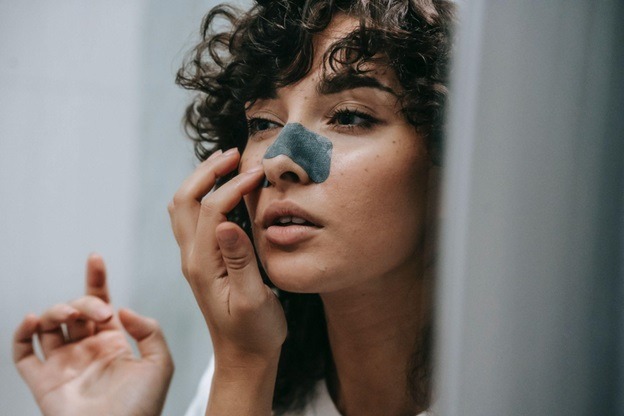After you hear of rhinoplasty, you immediately think of appearances. But beyond changing one’s look, this type of cosmetic surgery can help alleviate the symptoms of seasonal allergies. A nasal allergy, also known as allergic rhinitis, isn’t a life-threatening condition. However, it can make you quite uncomfortable and even be distracting. Rhinoplasty can help make these symptoms more bearable, especially if you experience difficulty breathing.
What Is Allergic Rhinitis?
This condition is an allergic reaction to certain allergens. According to the Asthma and Allergy Foundation of America, in 2018, about 24 million people were diagnosed with seasonal allergic rhinitis. Usually, pollen is the common cause of this condition. While you can get allergic rhinitis at any time of the year, they are more common around spring, early fall, and summer when pollen counts are higher.
What Are the Common Symptoms of Allergic Rhinitis?
Allergic rhinitis is quite uncomfortable. That is why you may want to consider rhinoplasty to alleviate the symptoms. Some of them include:
- A sore or scratchy throat
- Sneezing, itchy, running, and stuffy nose
- Itchy watery eyes
- Dark circles under the eyes
- Fatigue and frequent headaches
- Dry and itchy skin that can leave blisters
You’ll experience one or several of these symptoms as soon as you come into contact with an allergen. Certain symptoms like fatigue and frequent headaches are common after long-term exposure.
What Causes Allergic Rhinitis?
Allergic rhinitis is a result of the body’s immune system reacting to a foreign body or allergen. These allergens are very tiny that you can easily inhale them through the mouth or nose. Allergies can be caused by many things, including:
- Pollen from grass, trees, and weeds
- Dust mites found in furniture, carpets, beddings, and drapes
- Mold spores
- Pet dander
- Cockroach waste and saliva
How Does Rhinoplasty Help Treat Allergic Rhinitis?
Rhinoplasty does not exactly treat allergic rhinitis. It treats the conditions that exacerbate the symptoms of allergic rhinitis. For instance, conditions like turbinate hypertrophy, deviated septum, and nasal polyps aren’t responsible for allergic reactions. However, they can make it hard for you to breathe, thus worsening the symptoms of allergic rhinitis.
A deviated septum is a condition where the wall at the center of the nose, also called the septum, is off-center. This condition can lead to nasal blockages and even make it hard for you to breathe. When you combine that with allergic rhinitis, you’ll dread allergy season. Rhinoplasty can correct this condition allowing you to breathe better. That means you won’t experience severe symptoms of allergic rhinitis.
Another condition that rhinoplasty can correct and help with seasonal allergies is turbinate hypertrophy. The condition occurs when your turbinates are inflamed. Turbinates are the bony structures along the interior of your nasal cavity, and they help filter the air you inhale. When inflamed, they can aggravate symptoms of allergic rhinitis, causing you to feel congested. Rhinoplasty helps remove a portion of the turbinate, helping you breathe better. If you are interested, visit this site to book your appointment now.
When Is the Right Time for Rhinoplasty Surgery?
People who suffer from seasonal allergies sneeze and blow their noses often. Doing these two things after undergoing surgery can be quite uncomfortable. The right time to have the surgery will depend on the type of allergy you have. For instance, if you get affected during spring when pollens are in large numbers, consider having the surgery during other seasons. But if you suffer from allergies throughout the year, there’s no perfect time. You’ll have to do your best to avoid exposing yourself to any substances that can trigger those symptoms.
How to Prepare for Rhinoplasty
Once you decide you want rhinoplasty, the doctor will give you a set of instructions to follow before the procedure. You might be asked to:
- Undergo lab tests
- Stop smoking
- Take specific medication
- Avoid anti-inflammatory drugs, aspirin, or herbal supplements, as they can lead to excessive bleeding.
Following instructions increases the chances of a good outcome.
Post-Care Instructions
After the operation, you might feel some congestion. This is normal and goes away after a while. You will need a lot of rest for the first week or a few days. Avoid doing too much activity to ensure the healing process is more effective and quick. In case you experience an allergy attack after the surgery, talk to your surgeon before taking any medication to avoid interfering with the healing process.
Why Shouldn’t You Ignore Allergic Rhinitis?
If you ignore allergic rhinitis, it can lead to chronic sinusitis. This is a worse condition that leads to postnasal drip, malaise, and stuffiness. Get treated before it gets to that point. Having allergic rhinitis will not affect the outcome of rhinoplasty surgery. That’s why doctors recommend it. You’ll still look great at the end of the procedure and manage to alleviate the symptoms of allergic rhinitis.
If you have any concerns, talk to your surgeon before the surgery. They’ll be happy to help.
